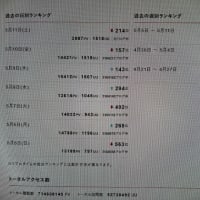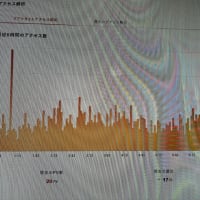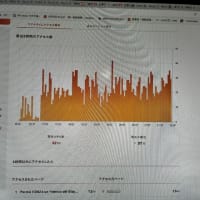The following is a chapter from a January 28, 2022 goo posting entitled Hannah Shepherd, Amy Stanley, David Ambaras, Paula Curtis, Sayaka Chatani, and Chelsea Sendy.
I have already mentioned that I subscribe to the Weekly Shincho to read the columns by Masayuki Takayama and Yoshiko Sakurai at the end of the magazine.
Last night, however, I read another page casually and found the following article.
It is a critical article.
This article is critical because it shows that the problems facing democratic societies today, or what is being touted as a crisis of democracy and the division of domestic (primarily U.S.) public opinion, are caused by the Nazi states of China and South Korea, which continue to practice Nazism in the name of anti-Japanese education, and the Nazis who have been raised with this education and who have been trying to divide the West (especially the U.S.), Japan, and the U.N. into major political parties. The United States, Japan, and the United Nations are the main stages of this anti-Japanese propaganda.
The U.N.
Suppose you have time to preach and preach about SDGs, global warming, etc., etc., which are Chinese plots. In that case, you must immediately recommend to China and South Korea to abolish Nazi education.
The fact that the United Nations has continued to ignore the conditions in China and South Korea to this day has brought about a crisis of democracy and encouraged the tyranny of totalitarian states.
It is no exaggeration to say that the U.N. is now entirely controlled by China.
It is no exaggeration to say that the UN is the main culprit in destabilizing democracy.
It is a must-read not only for the Japanese people but for people worldwide.
The people of Japan and the world should remember that the people who call themselves scholars in the following article are the enemies of intelligence, freedom, and, therefore, humanity.
The Japanese people should always remember the name of Sayaka Chatani, an assistant professor at the National University of Singapore, whose name appears in this article for the first time.
It is unbelievable that such a person is a university professor in the first place.
Exclusive Memoir: Harvard Professor Who Was "Muratohakibun" Reveals
Harvard professor who was "vilified" for his paper on "comfort women = professional prostitutes" reveals the extraordinary bashing of his thesis.
Japanese Researchers Move to "Exclusion," Not "Disprove
Korean scholars' prominent movement to retract their paper
The Asahi Shimbun's "Yoshida Seiji" lie perpetuated overseas
The fact that the Japanese military did not force women into prostitution
Koreans Gather at Comfort Women Statue to Lecture Professor Ramseyer
Harvard Law School Professor J. Mark Ramseyer
His paper "Prostitution Contracts in the Pacific War," published in late 2020, was heavily denounced in South Korea and the United States for denying the "comfort women = sex slaves" theory.
However, it was a politically motivated movement that violated "academic freedom.
One year has passed since the uproar, and the whole story of the egregious personal attacks has come to light.
My articles and books rarely attract attention.
It is because I write discreet papers and books that are read-only by very few specialists.
The same was true of my paper on comfort women that I published in late 2020, which no one paid attention to except for a light comment by an economic website.
However, a year ago, in late January 2021, the Sankei Shimbun published an excellent paper summary.
It appeared on the Sankei website on Thursday, January 28, and in print on Sunday.
On Monday, February 1, I woke up as usual, had breakfast, drank coffee, and checked my e-mail.
I began to receive harassing hate mail defaming me.
The Korean media had picked up a Sankei article about my paper.
Seventy-seven hate mail arrived on Monday, all hostile, anti-Japanese, and mostly insane.
After that, I received tons of hate mail daily for the next two months.
The hate mail prompted me to check the website of The International Review of Law & Economics, the journal that published my paper, and found that the publisher, Elsevier, had posted tweets about the article and had received the report and found that there were 1,200 tweets about my paper.
It is bizarre.
No one had ever tweeted about my paper before.
I didn't even know how to read tweets.
With the help of my son, I registered a Twitter account and learned the search function.
It turned out that a group of American academics had read the Korean media article and were outraged.
The first was Hannah Shepard, a young scholar teaching Japanese history at Yale University.
She tweeted on Monday morning, "I am speechless where to begin. A professor at Harvard's Harvard Oral School, which Mitsubishi supports, argues that comfort women were prostitutes." An hour later, she continued tweeting, "I could ignore this article, but with it on the front page of the Korean media and his affiliation's name on it, can I ignore it? Can I ignore it?"
The top tweeters included Amy Stanley (who teaches Japanese history at Northwestern University) and David Ambaras (a professor at North Carolina State University), who were tweeting back and forth all day. Young scholar Paula Curtis joined them.
By Tuesday, the scholars on Twitter had concluded that they should organize a protest demanding that the paper be retracted.
In fact, Stanley and Shepherd had each asked the journal's publisher to withdraw the article from publication earlier on Monday.
Shepherd tweeted her request so that others could refer to it.
She added, "Ramseyer's paper simply repeats the views of far-right denialists in Japan in an echo chamber phenomenon (editor's note: the amplification and reinforcement of a particular belief or idea through repeated exchanges within a closed space) in an academic journal.
My critics seemed to be enjoying the festivities on Twitter.
Hey, at least five women say they have sent letters of request to the editors for this awful paper by Ramseyer."
Curtis tweeted, "How many male academics protested?" He continued.
Within two weeks, Shepherd, Stanley, Sayaka Chatani (assistant professor at Singapur National University), and Chelsea Sendy (professor at Aoyama Gakuin University) - all Japanese studies scholars in the Faculty of Humanities - jointly submitted a 30-page letter to the journal demanding the journal withdraw my article. (My colleague at Harvard University also submitted a one-week note to the journal.
(Within a week, my colleagues at Harvard University (Andrew Gordon, a specialist in Japanese history, and Carter Eckert, a specialist in Korean history) also submitted a letter to the journal's publisher requesting that the article be withdrawn.
The five scholars claimed many addenda to my paper, and Gordon and Eckert claimed they had yet to see me or the actual contract.
Both accused me of academic misconduct of the highest order.
Pressure on Affiliations
A Harvard Law School colleague, Ginny Seok Ji-young, submitted a critical article to The New Yorker magazine (apparently a popular magazine among the intelligentsia).
Although she had little knowledge of Japanese or Korean history, she contacted some of my critics (e.g., Ambaras and Gordon) and repeated their arguments.
In fact, three things needed to be corrected in the 30+ pages of the article, excluding page numbers and the like. None of them were significant mistakes.
Gordon and Eckert say that they have not seen the actual contracts, but there are numerous references to Korean and Japanese comfort women working under contract.
Almost every Japanese book on the subject mentions contracts.
Japanese government documents, memoirs, newspaper advertisements, diaries, and more also mention contracts.
Concurrently, Michael Choi, a Korean-American political scientist at UCLA, organized a signature drive among political scientists and economists to demand that my article be withdrawn from publication, eventually gathering over 3,000 signatures.
Many of the signatures were with the Korean surname.
Many who signed the petition know little about Japanese or Korean history.
It was shocking to me that a scholar would sign a petition to withdraw the publication of an article on a subject about which he is ignorant.
But in fact, many scholars did sign the petition.
The American professors began the old-fashioned and very ruthless village-hachi.
Harvard University has a Japanese Studies program (called the Reischauer Institute for Japanese Studies after the former Ambassador to Japan and Harvard professor), and I am a committee member.
On the institute's website, other professors doing Japanese studies immediately posted the criticisms that Gordon and five other scholars were unfolding, and the postings continued for almost six months afterward.
I am also on the boards of several academic groups, and one of my critics pressured the board to convene an ad hoc committee to consider removing me from the board.
The critics further attacked my editors.
Several publishers were planning to publish my other articles. None of them had anything to do with comfort women.
Nevertheless, my critics pressed the editors to cancel the publication of my paper.
Humanities Department, with many far-leftists
The series of events was bizarre.
The theory that the Japanese military forced Korean women to become comfort women is unreasonable.
Every military base has brothels nearby, and some prostitutes are willing to work there.
Many women willingly seek such jobs for money.
In such a situation, did the Japanese military forcibly gather Korean women (who had Japanese nationality, to begin with) and force them to work?
Such a story makes no sense.
However, the controversy over comfort stations is deeply related to "politics.
It should be clear to readers of this magazine that politics is behind the attacks from South Korea.
Voter support for the current Korean government is based on strong anti-Japanese sentiment and criticism of Japan.
The theory that the Japanese military forced Korean women to go to comfort stations forms part of the voter support.
This theory helps keep the current administration in power, and the attacks on me result from electoral dynamics.
South Korea is a democracy, but democracy is limited to the extent that it does not dispute and discuss the comfort women issue.
Scholars who deny "being moved forcibly" can be removed from their university positions.
At times, it even leads to criminal proceedings.
Scholars like Michael Cheh want to bring such unacceptable practices to U.S. universities.
The political background of Japanese studies scholars in the United States (e.g., Gordon, Stanley, Ambaras, and their group of five) may take a lot of work for readers of this journal to understand.
A clue to this lies in a recent paper written by Curtis.
She explains that "privilege, institutions, and networks of haves and have-nots contribute to the abuse of power by some groups, usually elite institutional white men in senior positions." Researchers like her struggle to "liberate and reform" universities from "senior white men" like me. and scholars like her are struggling to "liberate and reform" universities from "upper-class white males" like me, she explains.
Curtis's comments reflect the strange political situation that exists in humanities departments at contemporary U.S. universities.
Most humanities departments are uniformly left-of-center, many of them far left.
The extreme nationalist Korean narrative about comfort women fits that political mindset.
At any rate, when the comfort women issue is discussed, critics like Stanley and Ambaras seem determined to censor it thoroughly.
In mid-November 2021, a prominent South Korean economist, Lee Woo-young, wrote an op-ed in the diplomatic journal The Diplomat.
He, like myself, disagreed with the theory that Korean comfort women were sex slaves.
Ambaras posted a screenshot of the article on Twitter, declaring, "The deniers of the comfort women issue are an abomination," and continued, "Why does The Diplomat publish this piece of junk?" He continued, "Why does The Diplomat publish this scum?
Stanley retweeted the contribution, and Chatani joined in the writing.
Within hours, Mitchinne, a reporter for Za Diplomat magazine, wrote back, "We are in the process of responding. Sorry," he replied, and shortly after, "The contribution has been removed. We are truly sorry for this unpleasant and unacceptable mistake," he wrote.
In case that apology wasn't enough, he added, "We sincerely apologize that we posted this contribution on our website. The contributed text has been removed," he further apologized.
But Ambaras did not stop there. He wrote, "The editors should publicly explain why they allowed this to be published in the first place and what measures they will take in the future to prevent similar mistakes."
Singh replied, "I will make a statement on our official account. Again, I have no excuse. As the chief reporter for South and North Korea, I will be in closer contact with the editors and will do my best to review all contributions from outside the company.
Ambaras added, "Thank you. We all have many challenges when dealing with negativity, don't we?
Singh continued to apologize and said, "Finally, I would like to express my deepest gratitude to those who contacted me directly to point out this issue and to ensure that it is addressed promptly by me and The Diplomat. Please continue to review our communications to the best of your ability and provide us with your insight. Thank you," he added.
Still, the source of the information is "Seiji Yoshida."
What happened in Korea is, of course, very simple.
To minimize the incidence of venereal disease, the Japanese government extended the prostitution licensing system, which had been in place domestically, to other countries.
The military did not have to force women into prostitution.
Prostitution was a well-paying job for destitute women, and many poor women in prewar Japan and Korea competed for it.
First, the military could not afford to use soldiers to coerce unwilling women into prostitution.
After all, the soldiers were fighting a war.
About 40 years after the war, however, a man named Seiji Yoshida published a book titled "My War Crimes," he wrote that he and his soldiers went to Korea to "hunt women" to send to comfort stations.
As soon as the book was published, elderly Korean women began claiming they had been forcibly taken to Korea by Japanese soldiers and demanded money and an apology from the Japanese government.
The women, who previously said that they had been forced into their own volition, now claim that they were forced into their jobs by Japanese soldiers (after the publication of Yoshida's book).
Women who previously said they got jobs because of parental pressure now claim they were coerced into them by Japanese soldiers.
The same is true of the U.N.'s famous criticism of Japan (the Radhika Kumaraswamy Report). In her report, she explicitly quotes Yoshida's book.
But as readers of this magazine already know, Yoshida later confessed that her book was a complete bunk.
There is no evidence that the Japanese military forced Korean women into prostitution in the 1930s and 1940s.
In Korea, virtually nothing published before 1985 states that the Japanese government forced Korean women into prostitution.
And many of the women who have changed their claims live in nursing homes owned by women who have been indicted for massive financial fraud.
How much of this history is understood by American scholars is a mystery.
As recently as 2003, Gordon published a book based on an English-language source, but that source was based on Yoshida's fictional book.
In 2003, however, it was well-known in Japan that Yoshida's book was false.
Nevertheless, in the U.S., a Harvard professor of Japanese history wrote about comfort women in 2003, using Yoshida's book as his source.
In Japan, anyone who reads newspapers knows that the women began making claims of forced labor shortly after Yoshida's book was published.
However, American researchers have not mentioned the book at all.
They quote numerous quotes from the women but rarely mention that their stories have changed (in some cases, they have changed many times).
And they rarely mention the fact that Yoshida's falsehoods caused the controversy.
What happened on the Korean peninsula in the 1930s is evident.
The Japanese military did not force Korean women into prostitution.
They simply did not.
Sometimes, however, the more obviously wrong their claims are, the more academics will escalate their attacks on a simple point of truth.
On this subject, American scholars specializing in Japanese history are surprisingly militant.
They have made no attempt to disprove my paper.
They sought an injunction against the publication of the paper itself.
It is Stalinism in academia.
And it does not bode well for the future of Japanese studies in American universities.
May 15, 2023, in Osaka
最新の画像[もっと見る]
-
 日本保守党の執行部が見落としている重大な事実について。
31分前
日本保守党の執行部が見落としている重大な事実について。
31分前
-
 “こんな人たち”発言で安倍氏に選挙妨害者への謝罪を求めた蓮舫氏ら選挙妨害を政治利用した立憲が“選挙妨害厳罰化”とは聞いて呆れます
2時間前
“こんな人たち”発言で安倍氏に選挙妨害者への謝罪を求めた蓮舫氏ら選挙妨害を政治利用した立憲が“選挙妨害厳罰化”とは聞いて呆れます
2時間前
-
 河村たかしとの合従連衡は大同小異どころか大異小同である事は静岡県知事選における彼の行動で明らか
3時間前
河村たかしとの合従連衡は大同小異どころか大異小同である事は静岡県知事選における彼の行動で明らか
3時間前
-
 そもそも日本保守党に一気に参集した人達の全員が河村たかしという人物は全く想定もしていなかった
3時間前
そもそも日本保守党に一気に参集した人達の全員が河村たかしという人物は全く想定もしていなかった
3時間前
-
 Top 50 Most Viewed from 5/1 to Today in Goo
4時間前
Top 50 Most Viewed from 5/1 to Today in Goo
4時間前
-
 本欄に対する検索妨害、アクセス解析ページの改竄と、日本保守党に対する提言(苦言)
4時間前
本欄に対する検索妨害、アクセス解析ページの改竄と、日本保守党に対する提言(苦言)
4時間前
-
 本欄に対する検索妨害、アクセス解析ページの改竄と、日本保守党に対する提言(苦言)
4時間前
本欄に対する検索妨害、アクセス解析ページの改竄と、日本保守党に対する提言(苦言)
4時間前
-
 本欄に対する検索妨害、アクセス解析ページの改竄と、日本保守党に対する提言(苦言)
4時間前
本欄に対する検索妨害、アクセス解析ページの改竄と、日本保守党に対する提言(苦言)
4時間前
-
 It was a popular page yesterday, 2018/5/16.
4時間前
It was a popular page yesterday, 2018/5/16.
4時間前
-
 It was a popular page yesterday, 2019/5/16.
4時間前
It was a popular page yesterday, 2019/5/16.
4時間前









